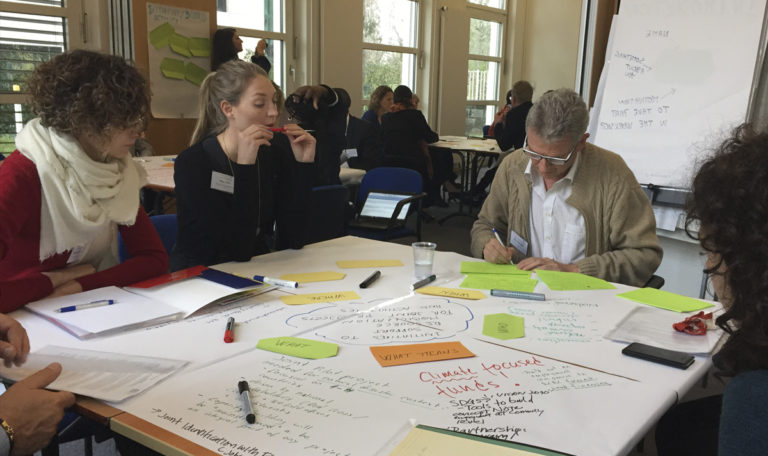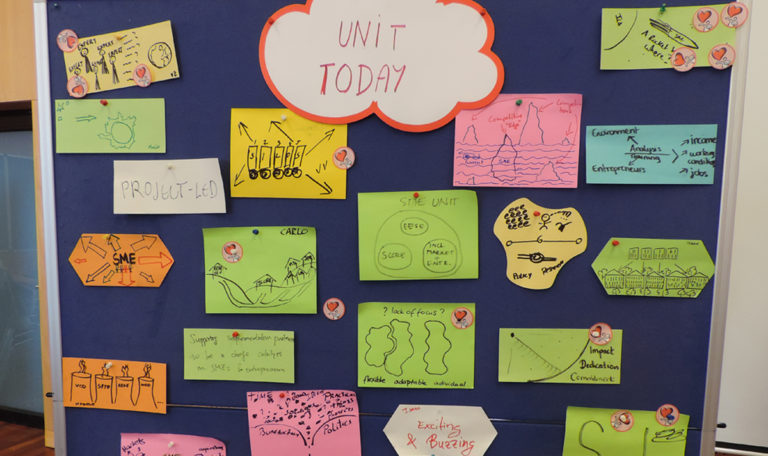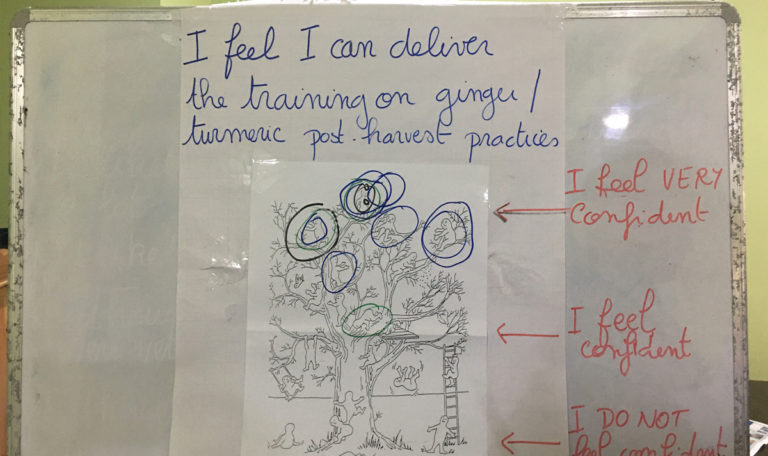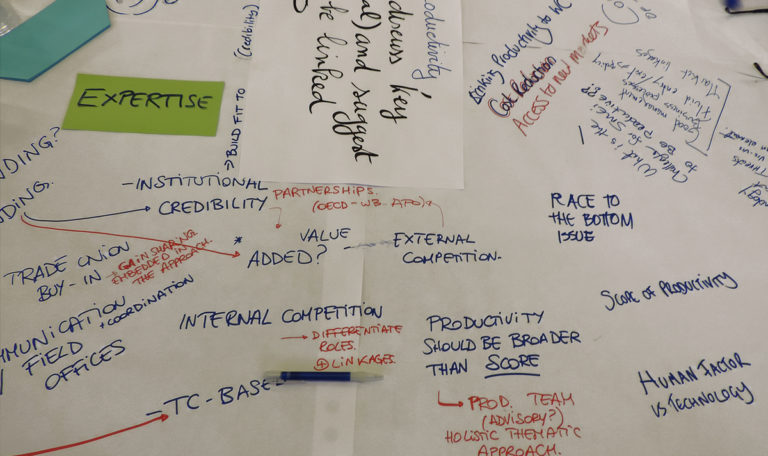Residential Training




You have probably attended training courses, wondering how they related to your professional practice or how you would implement what you had just learned. To help learners link training and professional practice, we design training programmes using the situated learning approach(Lave and Wenger, 1991) and applying the following principles:
- The best learning occurs when learners are confronted with real-life like activities, discussions, exercises performed in collaboration with peers.
- Trainers act as facilitators, not lecturers. One of their key roles is to engage learners at all possible times.
- The learning environment promotes reflection, discussion, and evaluative thinking.
To apply these principles, our training programs do not consist of mere presentations but rather include a range of interactive and learner-centered activitiessuch as World Café (to let learners discuss a range of carefully designed questions), Metaprocess (to help learners decide on key factors/ solutions/ alternatives/ practices), Jigsaw (to learn collectively on new topics), Open Space Technology (to let participants decide on the topics that matter for them), Knowledge Fair (to promote the exchange of knowledge and experience amongst participants) and many other activities that we create or adapt depending on the situation.
